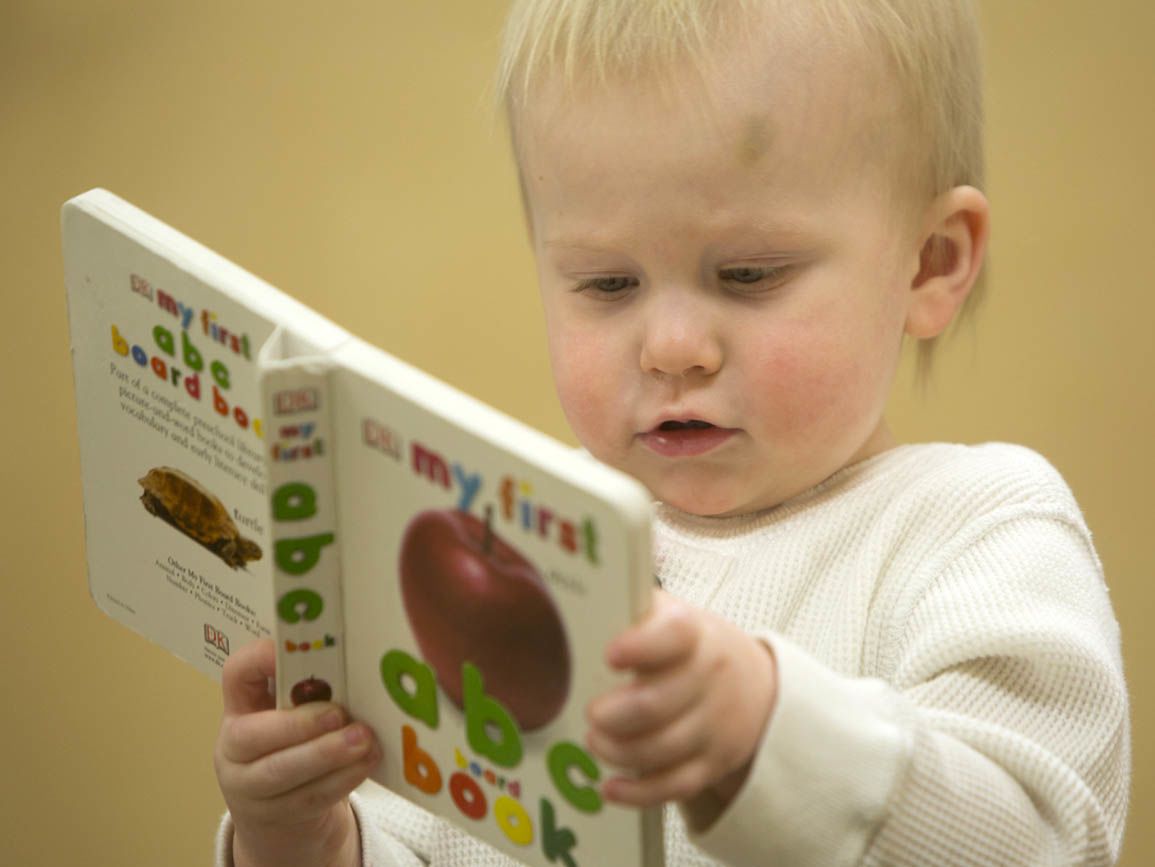Reading aloud to children is one of the most impactful activities parents and caregivers can engage in to support a child’s development and path to becoming a lifelong reader. Reading diverse, inclusive, high-quality children’s literature to young children can foster language, cognitive, and social-emotional development.
Literacy development broadly includes reading, writing, and language skills, such as speaking, listening, and understanding. Reading is one of the many ways we communicate and connect; share ideas, thoughts, and feelings; and transmit our history, values, and culture. Becoming a reader involves three key dispositions:
- Joy: feeling that reading is enjoyable
- Confidence: feeling capable in one’s ability to interact with text
- Skills: Recognizing letters/phonics, knowing how to handle books, and understanding and comprehending information
Below, we explain how Bright Horizons supports children’s early love of reading and how you can help them at home, empowering them to become lifelong readers.
Infants
From the moment a baby is born, their brain is hard at work soaking up the language around them, processing sounds and recognizing faces. Babies learn reading is a positive, comforting experience by sharing familiar books with trusted caregivers. These warm and nurturing experiences assist in forming a positive association with reading, which is part of the foundation for a long-term love of reading.
Within our Bright Horizons centers, some ways we support babies’ growing love of reading include:
- Daily reading, a Bright Horizons Signature Practice
- Talking and interacting frequently with babies through prime times, our focus on nurturing, responsive relationships
- Singing fingerplays and rhymes and using sign language with babies
At home, you can support your baby’s love of reading by:
- Reading and singing together daily. Choose age-appropriate books with high-contrast colors, simple pictures, and textures. Sturdy board books are a great choice for this age.
- Use rich language. Serve-and-return, parentese, and sign language are helpful ways to engage your baby and support cognitive and social-emotional development.
Toddlers
Toddlers are beginning to explore the world around them with increasing curiosity and books are an invaluable tool to support their growing minds. At this stage of development, toddlers grow their love of reading as they explore books independently, begin to repeat stories, rhymes, and songs, and point out favorite pictures in a story.
At Bright Horizons, we support your toddler’s love of reading in ways that include:
- Daily reading experiences, a Bright Horizons Signature Practice
- Playing simple rhyming games
- Singing songs and fingerplays
You can support your toddler’s love of reading at home by:
- Making books readily available and reading daily. Toddlers are beginning to learn how to handle books with care, so having a mix of sturdy board and paper-paged books can be beneficial.
- Showing your child how to gently handle books. As you read together, model turning the pages slowly and carefully, and returning books to their home when done.
- Using rich language or sign language.
Preschoolers
At this stage in development, children are refining their listening skills, expanding their vocabulary and are connecting words to meaning. Preschoolers gain a love of reading as they remember and repeat familiar rhymes and songs; recognize some letters of the alphabet; understand the beginning, middle, and end of a simple story; and identify familiar words in the environment.
In our Bright Horizons centers, some of the ways we support preschooler’s love of reading include:
- Daily reading together
- Journals for drawing, narrating, and early writing
- Using books to research topics of interest
- Providing books that reflect children, their families, and the wider community through the use of mirrors and windows
- Playing simple games with letters, rhymes, and phonics
At home, you can support your preschooler by:
- Reading and discussing books daily. Ask your child questions about what they read; their favorite part, how a character may be feeling, and what they would do if they were in their shoes.
- Playing rhyming and letter games.
- Talking about your life, experiences, and routines.
Kindergarten Prep
Children at this age are building on the skills they acquired in their preschool years. Kindergarten Prep-aged children are beginning to recognize letters, understand that words represent objects and ideas, and start to make connections between letters and their sounds. Kindergarten Prep children gain a love of reading as they use reading and storytelling to gain knowledge, share their ideas, and make connections with the world. They can recognize and repeat rhymes, identify the sounds of most letters, listen to stories, and comprehend more complex sentences and vocabulary.
Some ways we support Kindergarten Prep children’s love of reading at Bright Horizons include:
- Reading poetry, non-fiction, and other stories together
- Acting out stories to understand character and plot
- Playing simple phonics and reading games
- Providing books that reflect children, their families and the wider community through the use of mirrors and windows
To support your child’s love of reading at home, you can:
- Use books to research topics of interest. Head to your bookshelf or local library to uncover more and further develop the notion that books contain information that can enhance our curiosity.
- Discuss books and stories daily. Engage with the story by asking questions, pointing to pictures, or using voices to bring the story to life.
- Sound out words together.
Reading is how we share stories, learn about the world, and connect with each other. It’s about having fun, feeling good about yourself, and knowing how to find the information you need. By nurturing the three dispositions – joy, confidence, and reading skills – parents and caregivers play a pivotal role in supporting their children’s growing love of books and empowering them to become lifelong readers.




